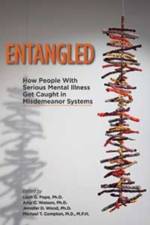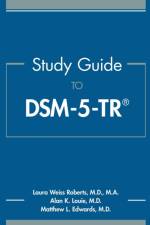775,-
"Overrepresentation of people with serious mental illness (SMI) occurs at every level of the criminal legal system. More than 30% of those with SMI have lifetime histories of arrest. Most of these arrests are for minor offenses, and this population is overrepresented in survival-type crimes associated with poverty and homelessness. Among the jail population, prevalence rates of having a current SMI are several times higher than those of the general population; individuals with SMI are also overrepresented among probationers and parolees. Once arrested, people with SMI are at higher risk of re-arrest; serve more days in pretrial detention; if convicted, serve more of their jail or prison sentences; and are more likely to have their probation or parole revoked than are offenders without SMI. Hence, once arrested, they become entangled. The editors of this book designed a study of the most frequent and overrepresented misdemeanor charges among people with SMI in four cities: Atlanta/Fulton County, GA; Chicago/Cook County, IL; the borough of Manhattan, New York City, NY; and Philadelphia, PA. The study objectives were to 1 identify the misdemeanor charges most overrepresented among individuals with SMI; 2 understand those charges in various contexts by conducting systems mapping exercises in four cities; 3 conduct focus groups; and 4 explain the use of misdemeanor charges among people with SMI as a foundation for further research, as well as policy and program development. The authors focused on specific misdemeanor charges such as criminal trespass, shoplifting, obstruction, and minor assault, as well as variations, which might include loitering, vagrancy, petit larceny, resisting arrest, disorderly conduct, and the like (and additional charges such as failure to appear to court and probation violation). These charges set the stage for the criminalization of serious mental illness. The book reviews reforms and policy advances in recent years in terms of alternatives to incarceration and diversion programs, attempts to imbue the criminal legal system with a rehabilitative ethos, and policies designed to reduce the footprint of the misdemeanor criminal legal system altogether. The authors emphasize the need for multisystem collaboration with a specific focus on advancing, and ensuring, racial equity in all reforms"--

























